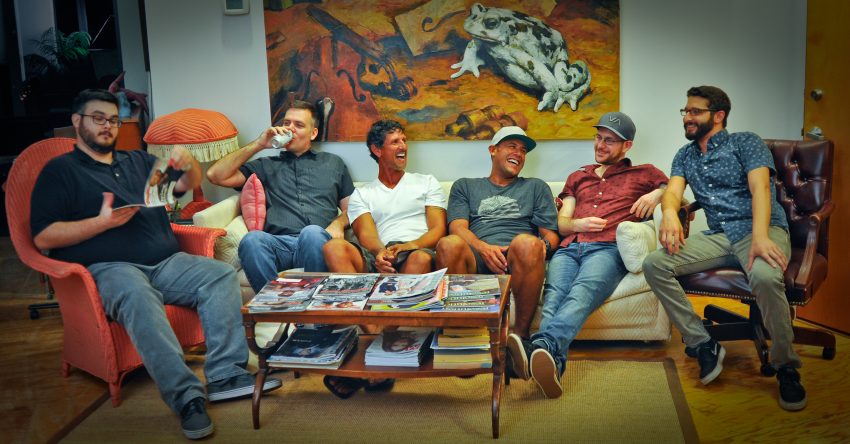Adapt and Evolve.
By Sean Gordon
Photos: Jack Bates
A mainstay in Palm Beach County music venues, Moska Project has made a name for themselves in South Florida’s reggae rock scene and have kept it there for 14 years. The band was founded by old neighborhood friends from Caracas, Venezuela, vocalist and guitarist Gilly Gonzalez and drummer Carlos Chaumer. The now six-piece band has released four albums and played festivals alongside genre giants such as 311 and SOJA. They have gone through numerous additions and subtractions all while continuing to evolve their sound and stay true to their roots.
Gilly and Carlos started their musical careers learning on handmade percussion and string instruments such as guitar, bass, and what Carlos calls the “cuatro”, an instrument similar to the four string ukulele. Although they had been playing music together for quite some time, the duo began playing formally under the name Moska Project in 2002. According to Carlos, back then the two “only played publicly about four to five times all year.” A long way from the booked out schedule the group keeps these days.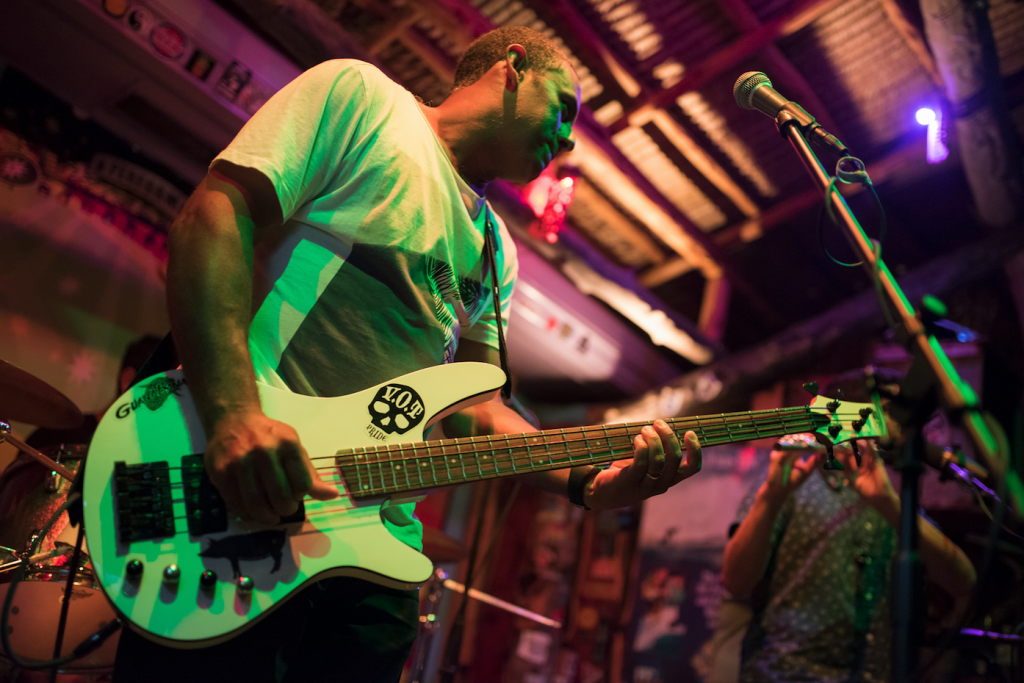
In 2003, after spending a year playing shows as a duet, Carlos and Gilly welcomed percussionist Bo Parra to the group. As a seasoned musician traditionally trained in Latin percussion, Bo brought experience which helped to further mold their signature rhythm. Moska Project played for the next five years as a three-piece group until they added bassist Jorge Orellana and Jean Araque on percussion. The addition of a new bassist allowed Gilly to make the switch over to rhythm guitar and leave the bass pieces solely up to Jorge.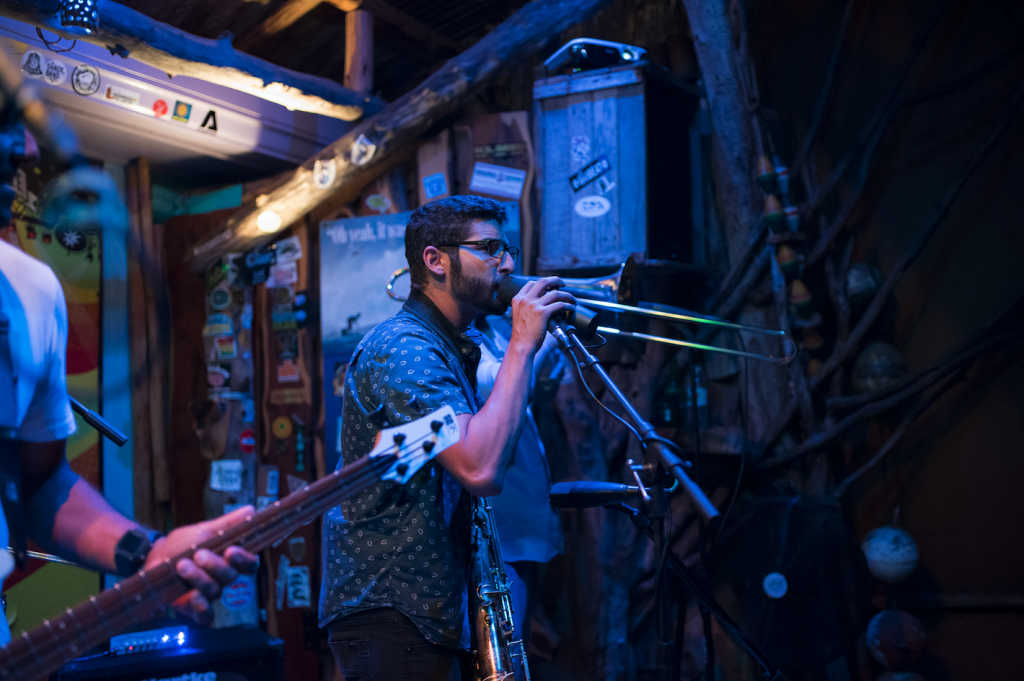
Not long ago Moska Project made a very important acquisition in Amir Tal. Carlos refers to Amir as “a walking brain.” Along with being the current lead guitarist, Amir is also a talented engineer who took leadership of the recording of the band’s latest album. “He recorded it, mastered it, did everything” said Carlos. The band then turned its sights on putting together a killer brass section by adding Markis Hernandez on saxophone and flute and trombonist Kevin Cripanuk. When asked about the new additions, Chaumer replied “we’re excited about the extra horns, because having a brass section is a whole lot of fun, especially for the type of music we do which is like a celebrating, fun, and dancing kind of music — its working out really nice.” The most recent change to the group came in June when Moska replaced longtime bassist Jorge with Tom Coughter. Over the years the members of the band have changed quite a bit. Bo, Jean, and Jorge have all moved on, but the heart of the music has remained the same. For Carlos and Moska Project it’s all about “keeping the essence of the Latin side.”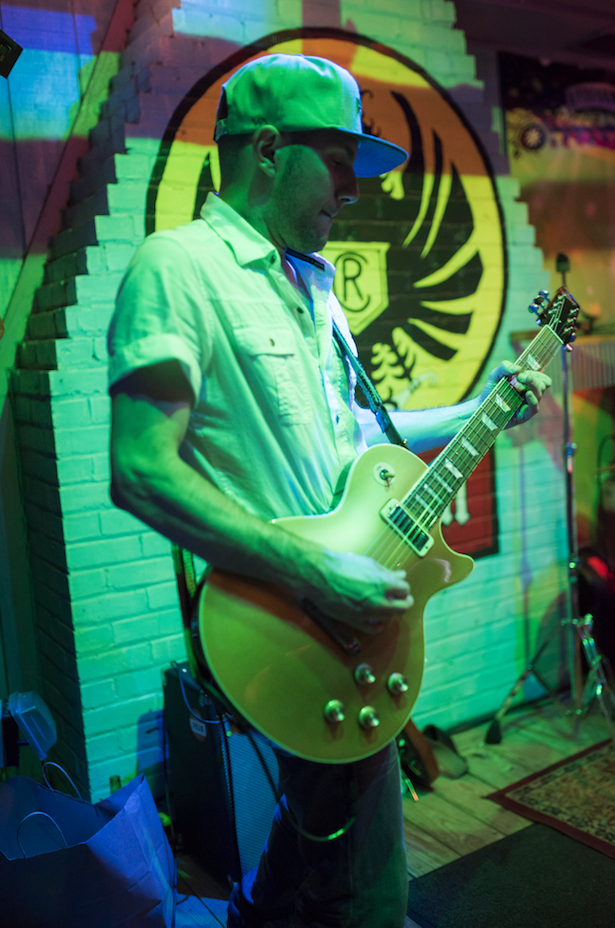
In May of this year, Moska Project released their fourth album, Cuatro. The band spent fifteen months working on recording and mastering the album at Q-Tal studios in Jupiter, Florida. When asked about the album Carlos said “we’re super, super happy with the final product, we’re super proud of what we did.” The band has plans to continue to play locally as well as expanding their reach to promote their new music.
One of the bands biggest accomplishments this year, along with releasing Cuatro, was their appearance at California Roots’ The Carolina Sessions in Myrtle Beach, SC last April. The band was a part of a talent heavy lineup featuring artists such as 311, SOJA, and The Movement. When asked about the opportunity to perform in front of 6,000 reggae fans Carlos said “It was one of the best experiences we’ve had. The headliners were great, crowd was strong from the early hours, the support for every band was really encouraging.”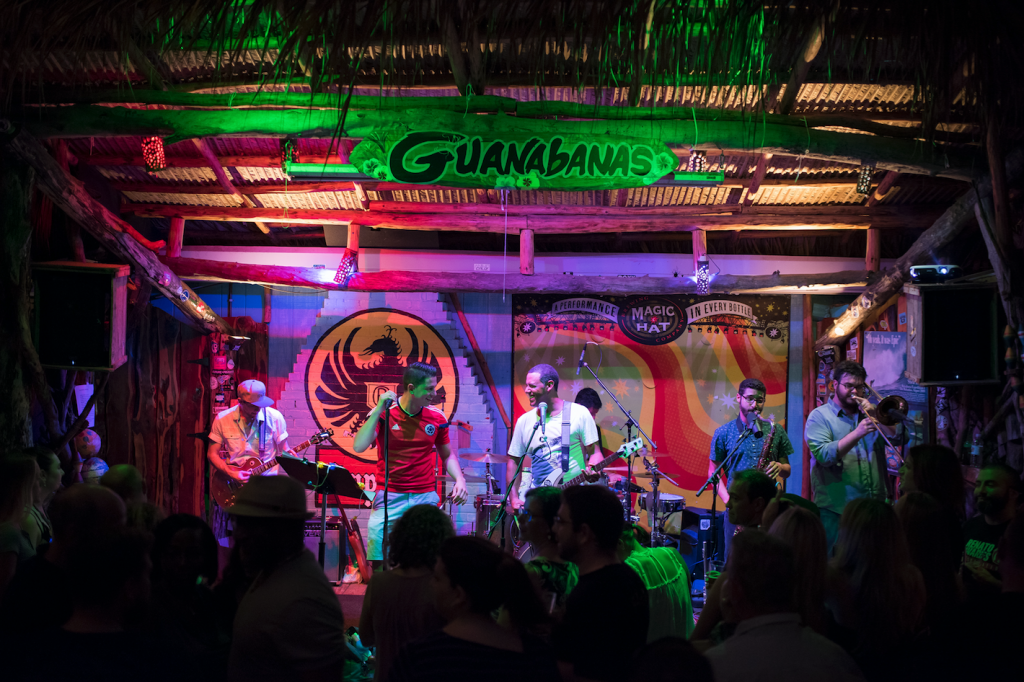
Moska Project has proven that they are here to stay. Through 14 years of changes, musical experimentation, and milestones the band has remained in the forefront of an ever evolving South Florida music scene. Having never lost the passion for the music that Carlos and Gilly discovered in Caracas, Moska Project continues to pay tribute to their Latin roots while keeping their foundation in reggae rock. Their secret to success over the past decade and a half is simple. Adapt and evolve.
Keep up with Moska Project at www.moskaproject.com and @moskaproject
